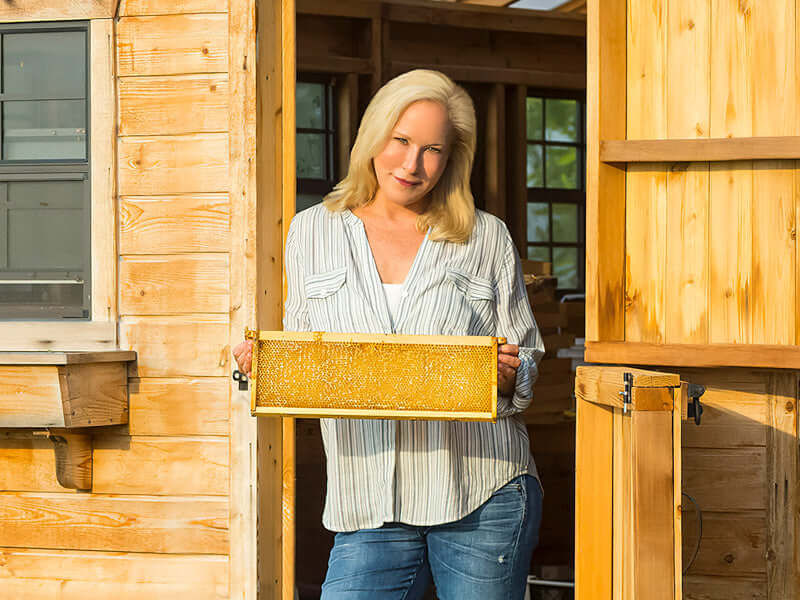Getting quality sleep has never been more challenging. Between work stress, busy schedules, and endless screen time, many of us struggle to unwind at bedtime. While there are countless sleep remedies available, one natural approach has been used for centuries: taking raw honey before bed.
Try drinking this Chamomile Lavender Tea before bed
Why Sleep Quality Matters
Quality sleep is essential for overall wellbeing. Most adults need 7-9 hours of sleep per night for optimal health. When we don't get enough rest, we may experience memory problems, irritability, and difficulty concentrating. Too much sleep can also leave us feeling groggy and anxious.
Establishing healthy sleep habits is crucial:
- Go to bed and wake up at consistent times
- Create a relaxing bedtime routine
- Balance your diet with nutritious foods
- Exercise regularly during the day
- Limit screen time before bed
- Reduce caffeine consumption in the afternoon and evening
The Traditional Use of Honey for Sleep
Honey has been traditionally used as a bedtime remedy across many cultures for thousands of years:
- Traditional Chinese Medicine has long incorporated honey into bedtime preparations
- European folk traditions include warm milk with honey as a nighttime drink since the Middle Ages
- Mexican healers have traditionally recommended honey in chamomile tea before bed
- Many cultures combine honey with apple cider vinegar and warm water as an evening beverage

Our Good Night Tea contains chamomile
How Raw Honey May Support Your Evening Routine
Raw honey contains natural sugars (primarily fructose and glucose) that may support your body's natural sleep processes in several ways:
Natural Sugar Balance
The natural sugars in raw honey can help maintain steady blood sugar levels throughout the night. Unlike refined sugars that cause rapid spikes and crashes, honey provides a gentler, more sustained release of energy.
Liver Glycogen Support
Your liver stores glucose as glycogen, which serves as fuel for your brain during sleep. Taking honey before bed may help maintain adequate glycogen stores, potentially reducing nighttime wake-ups caused by low blood sugar.
Supporting Natural Sleep Hormones
Research suggests that consuming honey may support the body's natural production of melatonin through this process:
- Honey's natural sugars can cause a mild insulin response
- This helps tryptophan (an amino acid) cross into the brain
- Tryptophan is converted to serotonin, which then becomes melatonin
- Melatonin is your body's natural sleep hormone

Simple Ways to Include Honey in Your Bedtime Routine
Here are some traditional and popular ways people incorporate raw honey into their evening routine:
Straight from the spoon: Take 1-2 teaspoons of raw honey 30 minutes before bedtime.
Honey and warm milk: Add a teaspoon of honey to a cup of warm milk (dairy or plant-based).
Herbal tea with honey: Stir honey into chamomile, passionflower, or other relaxing herbal teas.
Honey water: Mix 1-2 teaspoons of honey into a glass of warm water.
With apple cider vinegar: Combine honey with apple cider vinegar in warm water for a traditional bedtime drink.
Choosing the Right Honey
For the best experience, choose raw, unfiltered honey rather than processed varieties. Raw honey retains its natural enzymes, antioxidants, and beneficial compounds that are often removed during commercial processing.
At Bee Inspired, our Eastern Shore raw honey varieties are:
- Unprocessed and minimally filtered
- Sourced from small beekeepers
- Available in seasonal varietals like Spring, Mixed Berry, and Buckwheat honey
- Rich in natural flavor compounds from local wildflowers
Creating Your Perfect Sleep Environment
While honey can be part of your bedtime routine, optimal sleep requires a holistic approach:
- Keep your bedroom cool, dark, and quiet
- Use comfortable bedding and pillows
- Avoid large meals close to bedtime
- Consider gentle stretches or meditation
- Put away electronic devices at least an hour before sleep
- Try aromatherapy with lavender or other calming scents

Our Peace of Mind collection features a relaxing lavender and citrus scent
Important Considerations
Honey is not recommended for children under 12 months old due to the risk of infant botulism.
Individual responses to honey may vary. If you have diabetes or other health conditions, consult your healthcare provider before making dietary changes.
While honey has been traditionally used for sleep support, it's not intended to diagnose, treat, cure, or prevent any disease. If you experience chronic insomnia or sleep disorders, consult with a healthcare professional.
Sweet Dreams with Bee Inspired
Adding raw honey to your bedtime routine is a simple, natural way many people have found helpful for winding down at the end of the day. The key is consistency - try incorporating honey into your evening routine for several weeks to see if it works for you.
Ready to try raw honey as part of your bedtime routine? Explore our selection of premium Eastern Shore raw honey and discover which varietal becomes your favorite nighttime companion.
Remember, good sleep is about more than just one remedy - it's about creating healthy habits that support your overall wellbeing. Sweet dreams!
This blog post is for educational purposes only and is not intended as medical advice. Individual results may vary. These statements have not been evaluated by the FDA.












